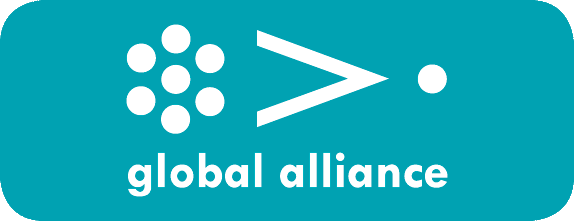Facilitator, not mouthpiece – the future of PR in wicked times
Ana Adi and Thomas Stoeckle
Public Relations cannot shake off its relationship with persuasion nor should it be ashamed of it. Instead it should embrace it, with responsibility and accountability.
As a profession, officially, Public Relations has very quietly passed its 100 years mark during the COVID-19 pandemic. That is, if you take “Father of PR” Edward Bernays’s early writings, and claims in his autobiography as PR’s professional launch.
However, the recent pandemic didn’t allow for much fanfare and indeed self-PR. Instead, communicators in many parts around the world have experienced a new kind of attention and with it a renewed recognition. Communicators were called upon and asked to monitor, inform, update, curate, help keep teams together, give courage and strength, build connections. An online survey by the CIPR, during the height of Coronavirus restrictions in 2021, questioned 1,029 people in PR and found 85 percent of those interviewed said the pandemic had ‘increased the value and reputation of public relations’.” As their work became visible and acknowledged, questions about PR/Comms’ worth and benefit, their loyalty, their impact on organizations, communities, society also resurfaced.
Equally, however, as the pandemic discourse become more politically polarized and divided on topics such as lockdowns, mask mandates and vaccination, more questions and a renewed suspicion were directed at communication practitioners.
In a book chapter we recently wrote for The Routledge Companion to Public Relations (edited by Pompper, Place and Weaver), we argue that the PR and communication practice is not well prepared to face the often unprecedented challenges of a hypercomplex, polarized, globalized, multi-centred, multi-cultural world by wicked, VUCA problems. Problems for which no known solutions exist, crises for which no comms standard operating procedures have been written: problems that are at the same time, volatile, uncertain, complex and ambiguous (in short, VUCA).
That unpreparedness stems, we argue, from PR’s historical grounding in modernist management principles and excellence concepts, as well as it’s inability to address its relationship with persuasion and its positioning as serving, instead of leading organisations.
We have some proposals on how to move forward.
· Accept, with responsibility and personal accountability, that PR work is values work and that it is thus activism. If activism is the willingness to actively support, pursue, and promote an idea, issue, or ideology, then every communicator, irrespective of sector and organization, is an activist. With the time, resources and knowledge they have to persuade others must come transparency, responsibility (to self and others), accountability (to self and others and enforced through policies, rules and laws).
· Stop associating PR with the “mouthpiece of the organization”. Change the focus of PR from (short and medium term) organizational benefit to (medium and long-term) social benefit. Empower PR – externally as well as internally – drive triple-bottom line practice.
· Doing this will change both the mission and methods of PR. PR will become a stakeholder-oriented facilitator (instead of a serving mouthpiece) and organizational listening (research, measurement and evaluation, long-term) will drive business success in a way that organizational speaking (campaigns and projects) never could and never will.
· To address the challenges of values-based work and their intersection with personal values and preferences as well as biases, embrace reflective practice as part of continuous development efforts. Teams need time and space for learning, to complete ‘reflective loops’. Only by acknowledging one’s own assumptions and biases, can communicators support others in facing their own and can communicators make the profession and its education meet the promises and ideals of diversity, inclusion, equity and belonging.
· To navigate the complexities of daily practice, establish ethics conversation forums and build a library of cases. In the same vein, consider identifying ways in which codes and guidelines can be enforced, rather than just verbally supported. Codes of ethics, while good for orientation, have rarely provided practitioners with responses to daily dilemmas aggravated by power and complicated by culture, context and resources. In equal measure, codes of ethics have not (yet) seen any individual practitioner put on a break. Just look for team members of disgraced agencies continuing and rebuilding careers elsewhere.
· To address PR’s continuously perpetuated myths (both good and bad – such as that PR supports a pluralistic, democratic societies and that is not present in other systems, that PR is always well intended, that activism is opposing and opposite to PR, that there is a good and a bad way for doing it but no good and bad practitioners), make communication a compulsory study topic in all specializations, humanities and science alike. Only by demystifying how persuasion works, how media systems work, how arguments are built and strategies implemented and the difference between trained communication specialists and other colleagues, can the profession leave “spin doctoring” in the past.
· To truly professionalize PR, make it a grad school discipline: where the shareholder profit bottom line philosophy drove the proliferation of elite business schools focused on the core principle of profits and growth, the stakeholder triple bottom line philosophy should drive a new form of business school: one that has the balancing of stakeholder interests for mutual benefit at its core. A re-energized PR and communication profession should be well positioned to lead the effort.
Prof. Dr. Adi is the Vice-President of Quadriga University of Applied Sciences in Berlin where she is also currently teaching and researching. Prior to her role there, she has held lecturing and research posts in the UK, Belgium and Bahrain. She is the host of Women in PR, a podcast series featuring interviews with women that have embraced PR (as research or practice or both). She is currently engaged in an international Delphi study exploring projections and reflections on the future of PR and their social impact.
Thomas Stoeckle is a post-graduate researcher (Ph.D.) at Bournemouth University’s Faculty of Media and Communication, and a partner at communication agency Dot I/O Health. Originally from Germany, Thomas has lived and worked in London since 2000, pursuing a career in media intelligence and communication consulting, most recently at Lexis Nexis. He teaches public communication related topics at PR Academy UK, Bournemouth University UK, and Quadriga University of Applied Sciences in Berlin.
He is the founder and co-host of a podcast on data, marketing and communication, TheSmallDataForum (www.smalldataforum.com), Member of the Commission for the Measurement and Evaluation of Communication at the Institute for Public Relations, Member of AMEC (the International Association for the Measurement and Evaluation of Communication), and a Fellow of the Salzburg Global Seminar.
Article published as part of Global Alliance Ethics Month 2023. #EthicsMatter #EthicsMonth
Any thoughts or opinions expressed are that of the authors and not of Global Alliance.



